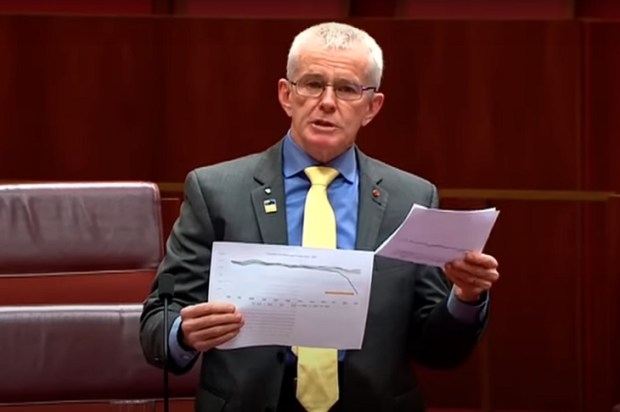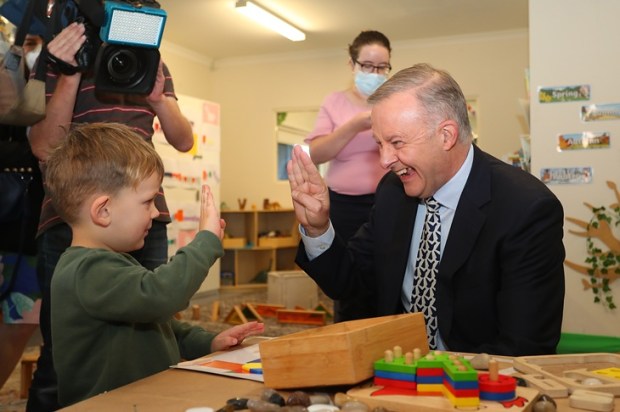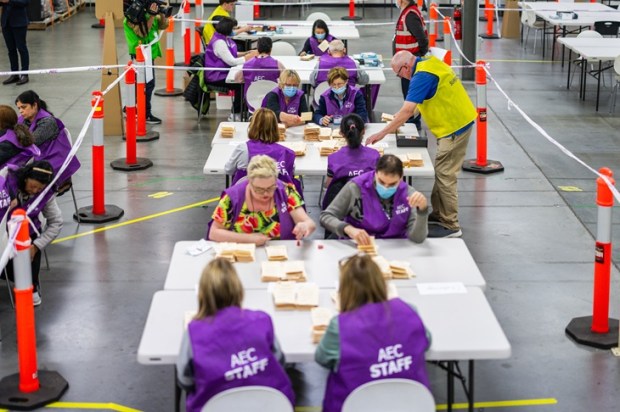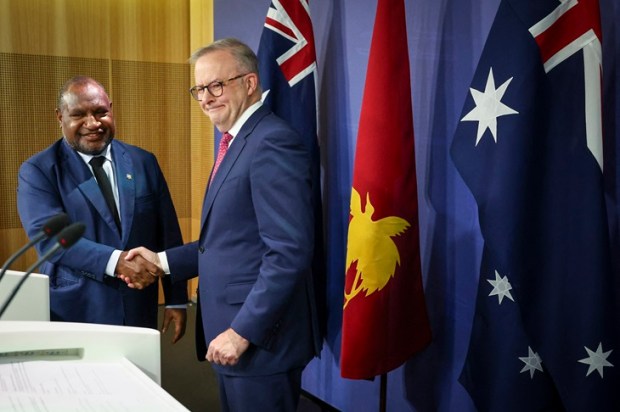Here’s another reason, as if any more were needed, why Australian democracy is in trouble. The voting behaviour of Gen Z Australians (those born between 1997 and 2023) indicates their profound disengagement from Australian politics – half of young Australians vote only because ‘they’re scared of a fine’ if they don’t.
Are younger Australians so glued to their TikTok digital distractions and Netflix binge-watching that the political world passes them by or does the fault lie with Australian politics and its apparent inability to motivate Gen Z Australians to take part in determining the course of Australian society other than through financial penalty?
A new survey (Young voters, abstainers and unregistered: Generation Z turnout in Australia, by researchers from Griffith University) canvassed 1,400 Australian citizens aged 19-27 years at the time of the 2022 federal election and found that 46 per cent of them got to the ballot box only through the threat of a $20 fine if they didn’t.
Of those who did risk a fine by not voting, political enthusiasm was also unsurprisingly in short supply. Most (22 per cent) of the non-participants said they couldn’t make it to the polling booth because they were sick on election day. This is a stretch – are nearly one in four young Australians so sick on any given day that they can’t leave their homes? A further 18 per cent ‘forgot’ to vote and 8 per cent ‘did not think it was my duty to vote’ so another quarter of Australia’s younger citizens are seemingly so forgetful and self-centred that they have completely blocked out the real world, including its politics.
At least the 19 per cent who were ‘not interested in politics’ were being more honest about their political apathy as were the 13 per cent who abstained because they thought that voting does not make a difference or the 11 per cent who said there was no party or candidate they wanted to vote for. We can all sympathise with these sentiments but there is an element of excuse, rather than reason, behind our politically-abstinent Gen-Z’ers because even if the centrists of left and right don’t blow your skirt up there are more exciting options further to the left (the Greens, even the Trots if you are lucky) whilst the Right has a smorgasbord of larger and smaller micro-parties to tempt the more conservative.
Similar reasons/excuses applied to those younger Australians who were not even enrolled to vote (as also required by law) – 10 per cent of 18-24-year-old Australian citizens are not enrolled which five times the rate of the estimated 2 per cent of the total eligible voting population. A third of Gen-Z’ers who were not registered said this was either because they did not know they had to register or because they did not know how to do so but are we really to believe that these digital illiterates have never heard of Google and its search field?
A major conclusion of the Griffith researchers is that Gen-Z non-voters (both the unenrolled and the enrolled-but-abstaining) have ‘weaker faith in parliamentary democracy’ and ‘greater interest in non-electoral activism’. Now, whilst I do not agree with everything that Churchill said and did (the Anzac debacle, for example), his famous (albeit borrowed) quip that ‘democracy is the worst form of government except for all the others’ seems on the money – but not to the modern, younger non-voting repudiators of democracy whose spurning of the vote may be motivated by attachment to much worse models of government, including ‘direct action’ that involves knocking down statues of ‘bad’ historical actors, instigating traffic jams, vandalising artworks or going the full ‘death to Zionists’ (aka Jews) route, for example.
One clue to the reasons for the dire straits of parliamentary democracy is offered by the finding that country of birth is significantly correlated with voting participation: 62 per cent of the native-born Gen Z’ers voted, nine percentage points higher than the 53 per cent of the foreign-born who voted. It seems that the wonders of multiculturalism don’t include all that much enthusiasm for Australian democracy amongst some of our ‘vibrant’ new cultures.
This observation is backed up by a survey of Chinese and South Asian migrants, most of them first-generation migrants and resident in Australia for more than six years, where at least half of them said they don’t fully understand Australia’s system of government or the way Australian politics works, citing language as a barrier but also pointing a finger at ‘non-migrant cohorts’ for not sharing the migrants’ concerns – one Asian migrant noted, ‘I vote on immigration issues, but I’m not sure that my white colleagues care’, a deft bit of guilt-tripping.
Some migrants’ lack of political literacy, this survey appears to suggest, can cause them to favour candidates who share their cultural heritage whilst not understanding the policies the candidates stand for. Well, what sort of a basis for a vote is that, with ethnic and racial tribalism to the fore rather than policy… Instead, Chinese respondents focus more on the issue of immigration whereas South Asian respondents ‘prioritise human rights, gender equity, and social welfare’. With Make Woke Great Again cadre like this, no wonder we are in a multicultural pickle with democracy the loser.
Back to our Griffith researchers, they acknowledge the problem of Gen Z voter disengagement but cling ever more fervently to compulsory voting as a curative – ‘enforcing compulsory voting, with relatively small financial penalties, has a significant impact on the decision of Gen-Z youths to turn out at elections’, they say. Why, however, should the apathetic be compelled by a potential fine into doing something they don’t care about and which devalues and neutralises the votes of those who take their civic duty seriously, even enthusiastically, and who study the policy form book as if it were a Flemington race meeting?
Neither does the call for better civics education really get to grips with the problem of Gen Z democracy abstention. A recent federal parliamentary enquiry into ‘civics education, engagement, and participation in Australia found that civics education at school was patchy, inconsistent and is largely “not working”, leaving young people disengaged and unable to fully participate in our democracy’. This enquiry also found, however, that, ‘many [secondary school] students were just not interested in the subject’. If Australia’s younger Gen-Z’ers are not inspired by Australian democracy as she is practised, then formal study of it is a non-starter, too.
So, compulsory voting it is but whilst it may make Australia’s democracy KPI of turnout a world leader, if it takes financial bullying to force the ‘don’t knows/don’t cares’ to mark a ballot paper, is Australian democracy really the winner? US politics and democracy has been spectacular (indeed, inspiring to some of us) in 2024-25, but its revival has been achieved with just a voluntary turnout of around 66 per cent (in line with the historical average) compared to a compelled, and often reluctant turnout amongst some demographics, of over 90 per cent in Australia.
The Trump/Vance/Musk lesson? Make politics great again and the voters will come. Guess which age cohort now most solidly supports President Trump 2.0? It is Gen-Z, with a +10 approval margin but is anyone in Canberra paying attention?

























